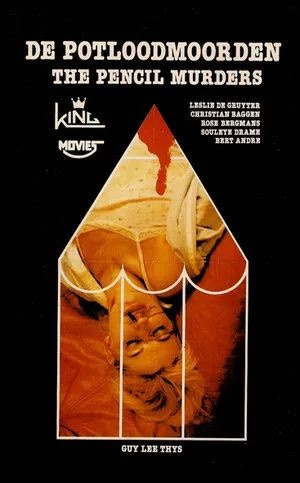
>>LEES HIER DE VLAAMSE VERSIE<<
A Bloody Belgium BUT-Film Festival presentation: "The Pencil is Apparently Also Mightier than the Sword: The Flemish Thriller that Penetrates Your Brain!" by Davy Bielen.
At the BUT Film Festival, we're not afraid to schedule a special event at the last minute: a unique 35mm screening of "The Pencil Murders" (1982), a true Flemish thriller from Antwerp in which a killer jams pencils into the nostrils of his victims, fatally penetrating their brains. Police Inspector Rick Van Houtte (Leslie de Gruyter), assigned to the case, is so in the dark that he forgets to penetrate his beautiful wife Marilène (Rosemarie Bergmans) as he is completely consumed by the case. Will he manage to unmask the killer and save his marriage?
Find out on Sunday, September 1st at 2 PM in the Nieuwe Veste Theater, in the presence of director Guy Lee Thys himself! Long doomed to moldy VHS tapes in the collections of video store enthusiasts, it is now finally available to see with the best image and sound quality for the BUT-minded festival audience. An event you don’t want to miss!
I was already so enthusiastic about this prospect that I boldly took the plunge and had a conversation with the man himself!
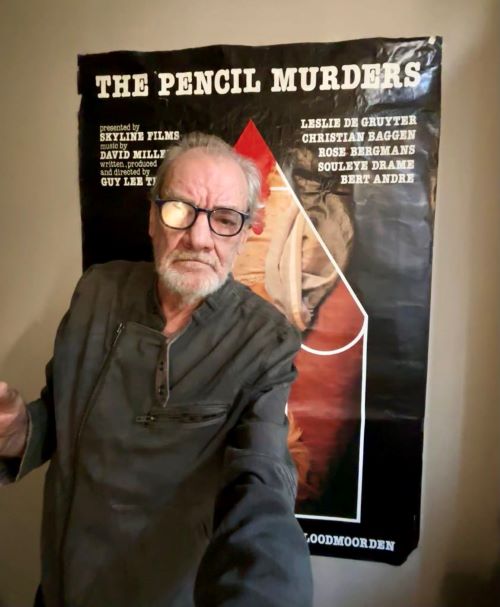 How did you come up with the idea for "The Pencil Murders" (1982)? It is often written that the Italian giallo was a major influence on the film. Is this true, do you agree with this, and why?
How did you come up with the idea for "The Pencil Murders" (1982)? It is often written that the Italian giallo was a major influence on the film. Is this true, do you agree with this, and why?
"The idea for 'The Pencil Murders' came from an article in Playboy with a notorious ex-CIA man who said he was trained to kill someone with a simple pencil. When the interviewer asked how that worked, he replied: 'I’m not going to tell you because I don’t want any pencil murders on my conscience.' I was familiar with the Italian gialli, but only much later, when we started ego-surfing on the internet a quarter of a century ago, did I come across an article in Kinoeye by a film professor from Scotland who mentioned that there were three examples of gialli made outside Italy, and 'The Pencil Murders' was one of them."
What were some of the biggest challenges in writing the script?
"Based on the title, my doctor told me there were three possibilities: ramming the pencil into the throat, the ear, or the nose, resulting in almost immediate death. Aesthetically, ramming it into the nose seemed the most interesting. I wrote the script in six days, in May 1981. I had a large circle of friends in their twenties—I was 28 myself—who were still studying or had graduated from the six film schools in Brussels, half French-speaking, half Dutch-speaking. We made a participation contract with a total of 37 people (including the cast) according to an old law that allowed for an 'association in participation.' So, everyone basically worked for free."
At the time, the film could not rely on government funding. How did you manage to finance the film on your own?
"In those days, there were two types of government funded films: 'farmer films' or Heimatfilms and 'worker films.' I never applied for a government fund, of course. My parents initially invested 500,000 francs (12,500 euros), and for the rather expensive post-production (in 35mm), another 3,000,000 francs (75,000 euros). Quite a large amount considering the cast and crew worked for free. If you calculate that everything was about five times cheaper over forty years ago, the budget would now be 437,500 euros, whereas with new technology today, you could shoot the film for 50,000 euros (if the cast and crew work for free)."
What obstacles did you encounter during the filming and how did you overcome them?
"Due to the 'borrowed' old noisy camera equipment, only witness sound was recorded, and everything you hear was dubbed and recorded in the studio. The worst part was being threatened by the far-left unions. They demanded that I pay social security contributions on the nonexistent fees. Thanks to a top lawyer (pro bono), this was quickly resolved. Other than that, everything was a walk in the park: we had a lot of support from the police as well, despite the film clearly addressing racism within the police force."
For the cast, actors such as Bert André, Neuteboom from "Flodder" (1986), and well-known TV personality/musician Marcel Vanthilt with his new wave band Arbeid Adelt were brought on board. Was there a specific quality or trait you were looking for in the cast?
"The actors were all professionals, mainly known from theater and TV, but they were used to speaking Standard Dutch, which was absolutely the norm in films at that time. That sounds very strange in Flanders now, because nowadays everything is recorded in dialect and subtitled in Dutch. You don’t notice that in the dubbed French and Spanish versions, of course. Correct French and Spanish are still the norm there, although that is starting to change."
How did the cinema release go in 1982, was it accompanied by a big premiere?
"First, there was the premiere in Cannes, where we had covered the entire Croisette with giant posters, in May 1982. So exactly one year after the initial concept of the script. The film was launched by me at a chic press dinner, paid for by the distributor, of course. I pushed it as a B-movie with the B for Belgium; 'The Pencil Murders' was intended as a joke. The distributor preferred 'The Belgian Brian De Palma,' haha. The often over-the-top dialogue, the first serial killer film, but I wanted to emphasize the extreme racism. It was a huge success, and after the commotion at the screenings at the Cannes Market due to overcrowding, we rented a cinema with 300 seats at the last minute on the closing Sunday of the festival. Normally, everyone has left by then. 350 people showed up! And the fire department and police to ensure safety. Madness. On July 2, 1982, there was the premiere in Antwerp, and the largest theater couldn’t accommodate the 1400 guests, so another theater was opened. The film ran for nine months in Belgium. In Spain, it was shown in twelve cities (in the Spanish version) and in France in four cities (in the French version). I didn’t quite understand it myself; I had never actually thought the film would make it to the cinema."
As a child I especially remember the VHS cover of the film in the video store with the image of a murdered woman with a pencil rammed through her brain via her nostril. This made the film almost legendary in my childhood mind, and I find it a shame that this piece of Flemish heritage has ended up in obscurity among VHS collectors. Therefore, the 35mm screening is particularly special for me. Are there any future plans for the film, such as a boutique label release/restoration on DVD/Blu-ray or something else?
"There have been a few attempts to release the film on DVD, but the cost-benefit ratio didn’t add up. I’m curious about the condition of the print, probably with English and French subtitles. Of course, it’s in mono sound. Twenty years ago, 'The Pencil Murders' was shown at a youth film festival in Germany, and it had to be explained that it was not a racist film but an anti-racist one. The film festival selections for 'The Pencil Murders' were initially mainly at arthouse fests! For example, Le Cinéma de la Liberté in Paris. Now you could perhaps accuse me of pretentious racism."
Are there specific techniques or approaches you consistently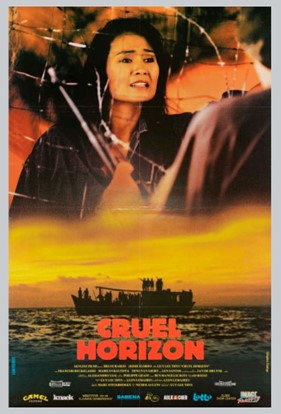 use?
use?
"No, not really. Every film is different. 'Cruel Horizon' from 1989 was the first and so far the only 70mm film in analog Dolby SR six-track on the European mainland. Also a B-movie but inspired by Asian cinema, so heavily over the top, but again with a very serious theme: the slaughter of the Vietnamese boat people. That film was distributed worldwide by, among others, Warner-Columbia in Australia and New Zealand and UGC in France, released in the States as 'Boat People' in 1990. Four months in theaters in Belgium. Also dubbed in French and Spanish. And my films 'Kassablanka' (2002), 'Suspect' (2005), and 'Mixed Kebab' (2012) are also each completely different. Those last three were selected for around a hundred film festivals. My latest film 'Mixed Kebab' was even the opening film of the Barcelona Festival. That film has been shown on all continents, including Antarctica (where Belgium has a base)."
Are there any particular directors or films that have inspired you?
"No. I have many fantastic favorites, but they haven't directly inspired me. I haven't taken anything from them."
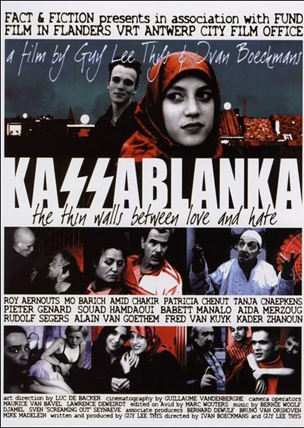 Personally, I find your film "Kassablanka" particularly funny, yet serious when necessary. Which film in your filmography are you most satisfied about, and why?
Personally, I find your film "Kassablanka" particularly funny, yet serious when necessary. Which film in your filmography are you most satisfied about, and why?
"Kassablanka' is my favorite. Because the subject is still up-to-date, and it still makes me laugh out loud."
What are some of the most important lessons you've learned in your career? Do you have any advice for aspiring filmmakers?
"Advice? Don’t make a B-movie as your debut, or you’ll be labeled a fool. Don’t let anyone else adapt your scripts. My biggest nightmare was 'Shades' with Mickey Rourke in the lead (1998), which was ruined by the then-beginner director Eric Van Looy. In 2008, I received $225,000 for my script of 'The Box Collector' (the highest-paid Flemish screenwriter at the time, and probably still now), and that film was also completely ruined by John Daly (producer for Oliver Stone and Bernardo Bertolucci, multiple Oscar-winner) because the man was not a director but wanted to try directing himself… An awful (and quite expensive by our standards) film."
How do you balance the roles of screenwriter, director, and producer? Which of these roles do you find most challenging and why?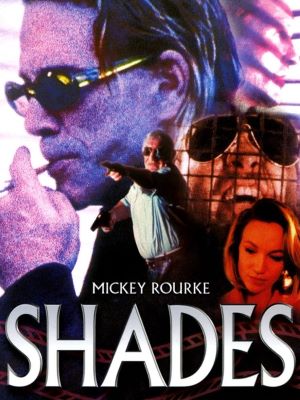
"On my 25th birthday, I won the Flemish State Prize for Best Script. That script (my first), 'The Intruder They Called Pederast,' dealt with pedophilia, and in a positive way! Such a topic would be impossible to tackle now. Two years earlier, on my 23rd birthday, I had a retrospective at the Cinémathèque Royale in Brussels, now called Cinematek. It was a two-hour presentation of my absurd short films, including 'The Last Porno Show,' 'How To Blow a Joint,' and other nonsense, 'Lyda' or the story of a suppressed orgasm…
So I always write scripts (as a screenwriter) with the budget in mind (as a producer), and directing is actually easy as long as you have the right crew and cast. I have fired people on each of the five feature films I have directed. I should have done the same for the two feature films 'Shades' and 'The Box Collector' that I wrote and co-produced."
How important is it for you to incorporate social issues into your work? Can you provide an example of how you have done this in one of your films?
"I was what you’d call 'woke' now, but not in the same way. In 'Kassablanka,' the headquarters was set in the City Hall of Antwerp! At that time, there were no Moroccan actors, so I took would-be actors to the City Hall. It was quite a spectacle. For 'Mixed Kebab,' we used the large police headquarters on Handelsstraat in Antwerp… very multicultural. Some actors and extras were afraid to enter the elevator with police officers who had previously arrested them, haha."
Are you currently working on any new projects? Can you tell us something about what we can expect from you in the future?
"I’ve been working on a no-budget film for a year now about myself, 'Selfie with Cat,' an old filmmaker who’s had enough of the new film fund fool, the director of the Flemish Audiovisual Fund, an ex-UNICEF, ex-Oxfam, anti-Semite and pro-Palestinian — I’m Jewish on my mother’s side from Amsterdam… And my aunt Claartje (also Jewish) had a heart attack on December 24, 1999, and was found in her home on January 4, 2000, half-eaten by her 18 locked-up cats…”
How does technology influence your filmmaking? Do you like using new technologies or do you prefer traditional methods?
"Always the latest technology. I have everything at home to shoot and post-produce a perfect 4K film from A to Z. Picture-sound-editing. And I studied with Frans Zwartjes in The Hague at Psychopolis De Vrije Academie. We already had video in 1971! Very basic."
What are your thoughts on the current state of the Belgian film industry? Are there any trends or developments you are particularly excited about?
"The director (see above) is mainly focused on inclusion, diversity, and not having old white men (which he himself is)."
How do you see the future of Flemish film? Director Jan Verheyen sometimes says that Flemish genre films don’t work in our country because it doesn’t fit our identity (‘it’s not us’). Do you agree with this, or could a Flemish horror film ever become a box-office success?
"Jan Verheyen has never made a film that was distributed abroad. Unless he paid for it himself? Because he has mainly made Dutch remakes? Note: For example, the film 'Team Spirit' (2000) is a remake of the Dutch film 'All Stars' (1997)."
After this in-depth conversation with Guy Lee Thys, we can conclude that the pencil is not only mightier than the sword but also a deadly weapon in the hands of a Flemish thriller director. Grab your calendar, sharpen your pencil, and make sure you’re ready on Sunday, September 1st for a film experience that will stay with you for a long time. And remember: never go to the drawing board unarmed again!